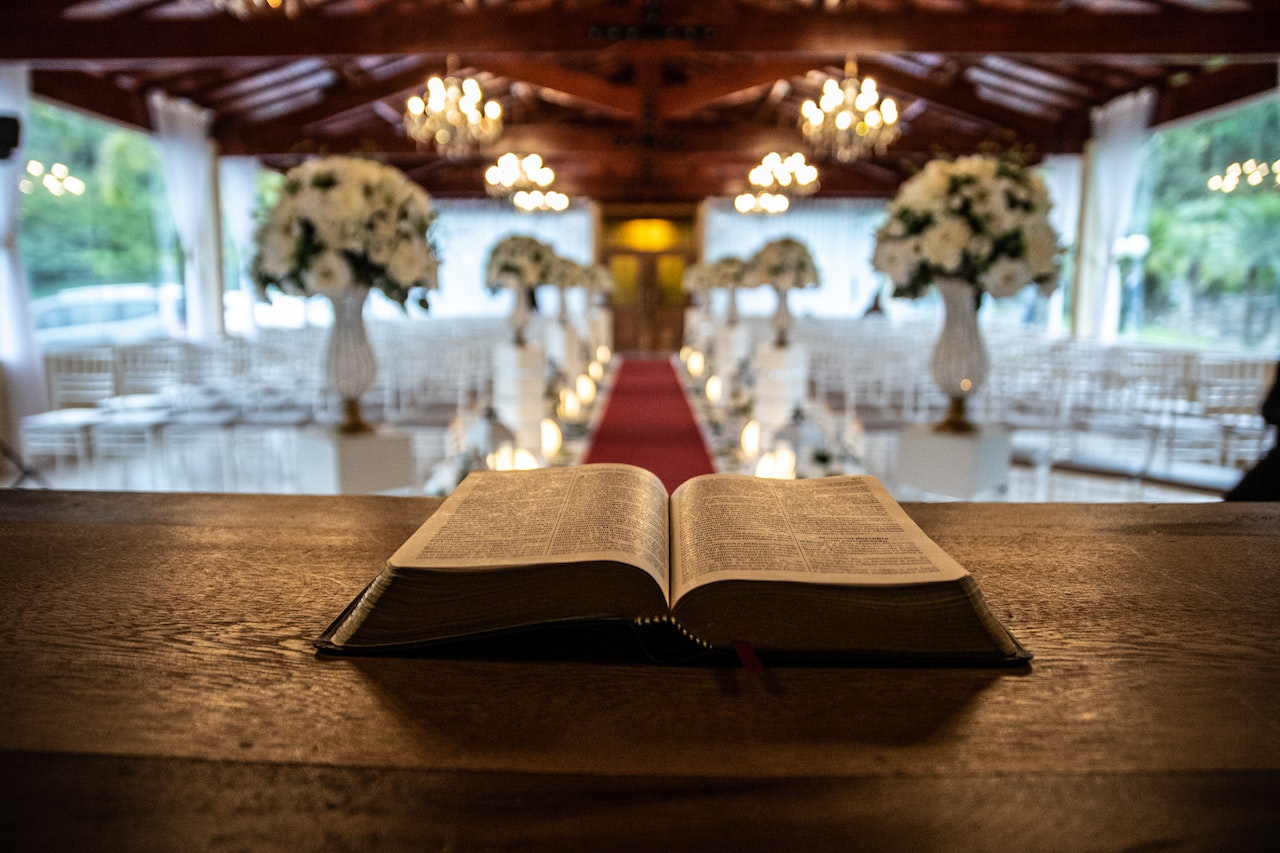In Catholicism, the practice of circumcision is not considered a sin.
Table of Contents
The Historical and Cultural Significance of Circumcision in Catholicism
Is circumcision a sin in Catholicism? This is a question that has sparked much debate and discussion among Catholics and scholars alike. To understand the answer, it is important to delve into the historical and cultural significance of circumcision in Catholicism.
Circumcision has deep roots in the Catholic faith, dating back to the Old Testament. In the book of Genesis, God establishes a covenant with Abraham, commanding him to circumcise himself and all the males in his household as a sign of their faithfulness to God. This act of circumcision was seen as a physical representation of their commitment to God and their belonging to the chosen people.
Throughout the centuries, circumcision continued to be practiced by the Jewish people as a religious ritual. However, with the advent of Christianity, the significance of circumcision began to shift. The early Christian community, led by the apostles, debated whether circumcision should be required for Gentile converts to Christianity. Ultimately, it was decided that circumcision was not necessary for salvation, as faith in Jesus Christ was seen as the ultimate sign of belonging to the new covenant.
In Catholicism, the sacrament of baptism replaced circumcision as the initiation rite into the faith. Baptism is seen as the means by which a person becomes a member of the Church and receives the grace of God. It is through baptism that Catholics believe they are cleansed of original sin and become part of the body of Christ.
While circumcision is no longer required for Catholics, it still holds cultural significance within certain communities. In some cultures, circumcision is seen as a rite of passage into manhood, a way to mark the transition from boyhood to adulthood. This cultural practice is separate from religious beliefs and is not considered a sin in Catholicism.
It is important to note that the Catholic Church does not view circumcision as a sin in and of itself. The Church teaches that sin is an act that goes against the moral law established by God. Circumcision, on the other hand, is a cultural and religious practice that does not inherently contradict the moral teachings of the Church.
However, it is worth mentioning that the Church does caution against unnecessary surgical procedures, including circumcision, unless there is a valid medical reason. The Church emphasizes the importance of respecting the integrity of the human body and avoiding unnecessary harm.
In conclusion, circumcision is not considered a sin in Catholicism. While it holds historical and cultural significance within the faith, it is no longer required for Catholics as a religious practice. The sacrament of baptism has replaced circumcision as the initiation rite into the faith. However, it is important to approach circumcision and any surgical procedure with caution and respect for the integrity of the human body.
Understanding the Theological Perspectives on Circumcision in Catholicism

Is circumcision a sin in Catholicism? This is a question that has sparked much debate and discussion among Catholics and theologians alike. To understand the theological perspectives on circumcision in Catholicism, it is important to delve into the history and teachings of the Church.
Circumcision has deep roots in the Jewish faith and is considered a covenant between God and the Jewish people. In the Old Testament, God commanded Abraham to circumcise himself and all male members of his household as a sign of their faith and obedience. This practice continued throughout the generations and became an integral part of Jewish identity.
However, with the advent of Christianity, the question of whether circumcision was necessary for salvation arose. The early Christian community, led by the apostles, debated this issue and ultimately concluded that circumcision was not required for Gentile converts to the faith. This decision was based on the belief that salvation comes through faith in Jesus Christ, not through adherence to the Mosaic Law.
In light of this, the Catholic Church has traditionally viewed circumcision as a cultural and religious practice specific to Judaism. It is not seen as a requirement for Christians or a means of obtaining salvation. Instead, the Church emphasizes the importance of baptism as the sacrament of initiation into the Christian faith.
While circumcision is not considered a sin in Catholicism, the Church does caution against unnecessary surgical procedures that alter the body without a valid medical reason. This includes cosmetic surgeries and procedures such as female genital mutilation. The Church teaches that the human body is a gift from God and should be respected and cared for.
It is also worth noting that the Catholic Church recognizes the validity of the Jewish faith and respects the practice of circumcision within the Jewish community. The Church acknowledges the shared heritage and spiritual connection between Judaism and Christianity, and encourages dialogue and mutual understanding between the two faiths.
In recent years, there has been a growing movement within Catholicism to reevaluate the practice of circumcision. Some argue that it is a violation of a child’s bodily integrity and autonomy, and should only be performed if there is a clear medical necessity. This perspective emphasizes the importance of informed consent and the rights of the individual.
Ultimately, the question of whether circumcision is a sin in Catholicism is a complex one. While the Church does not consider it a sin, it does encourage thoughtful reflection and consideration of the ethical implications of the practice. It is important for Catholics to engage in open and respectful dialogue on this issue, seeking to understand different perspectives and discern what is in line with their own faith and conscience.
In conclusion, understanding the theological perspectives on circumcision in Catholicism requires a careful examination of the Church’s teachings and history. While circumcision is not considered a sin, the Church emphasizes the importance of baptism as the sacrament of initiation into the Christian faith. The Church also encourages respect for the human body and thoughtful consideration of the ethical implications of surgical procedures. Ultimately, Catholics are called to engage in dialogue and discernment, seeking to live out their faith in a way that is faithful to their beliefs and respectful of others.
Examining the Ethical Considerations of Circumcision in Catholicism
Is circumcision a sin in Catholicism? This is a question that has sparked much debate and discussion among Catholics and non-Catholics alike. To understand the ethical considerations of circumcision in Catholicism, it is important to delve into the teachings of the Church and explore the various perspectives on this issue.
Circumcision, the surgical removal of the foreskin of the penis, has been practiced for thousands of years and holds religious and cultural significance in many societies. In Catholicism, however, the practice of circumcision is not considered a requirement for salvation or a religious obligation. Unlike in Judaism, where circumcision is seen as a covenant between God and His chosen people, Catholicism does not view circumcision as a sacrament or a necessary rite of passage.
The Catholic Church teaches that all human beings are created in the image and likeness of God and possess inherent dignity and worth. This belief forms the foundation of Catholic moral theology, which emphasizes the importance of respecting and protecting the integrity of the human person. From this perspective, any medical procedure, including circumcision, should be evaluated based on its potential benefits and risks, as well as the principles of informed consent and the well-being of the individual.
When it comes to circumcision, the Catholic Church does not explicitly condemn or endorse the practice. Instead, it encourages parents to make informed decisions regarding the health and well-being of their children. The Church recognizes that there may be valid medical reasons for circumcision, such as the prevention of certain infections or diseases. However, it also emphasizes the importance of respecting the bodily integrity of the child and avoiding unnecessary procedures.
In recent years, there has been a growing movement within Catholicism that questions the ethical implications of circumcision. Some argue that the procedure violates the principle of bodily integrity and autonomy, as it involves the permanent alteration of a person’s body without their consent. They contend that individuals should have the right to make decisions about their own bodies when they are capable of doing so.
Others, however, maintain that circumcision can be a legitimate choice for parents based on cultural, religious, or medical reasons. They argue that the procedure can have potential health benefits and may align with their religious beliefs or cultural traditions. They also emphasize the importance of parental authority in making decisions for their children, as long as those decisions are made in the best interest of the child.
Ultimately, the question of whether circumcision is a sin in Catholicism is a complex and nuanced one. The Catholic Church does not provide a definitive answer, leaving room for individual discernment and personal conscience. It encourages parents to carefully consider the ethical implications of circumcision and to seek guidance from medical professionals and spiritual advisors.
In conclusion, the ethical considerations of circumcision in Catholicism revolve around the principles of human dignity, bodily integrity, and parental responsibility. While the Catholic Church does not view circumcision as a religious obligation, it acknowledges that there may be valid reasons for the procedure. Ultimately, the decision to circumcise or not should be made with careful consideration of the well-being and best interest of the child, in consultation with medical professionals and spiritual advisors.
Exploring the Modern Debates Surrounding Circumcision in Catholicism
Is circumcision a sin in Catholicism? This is a question that has sparked much debate and discussion among Catholics in recent years. While the practice of circumcision has ancient roots and is commonly associated with Judaism, it has also been performed by some Christian communities, including Catholics. However, there is no definitive answer to whether or not circumcision is considered a sin in Catholicism, as the Church has not made an official statement on the matter.
One argument against circumcision as a sin in Catholicism is that it is not explicitly condemned in the Bible. Unlike other practices, such as abortion or euthanasia, which are clearly condemned by the Church, circumcision is not mentioned in the New Testament as being sinful. In fact, the apostle Paul, in his letter to the Galatians, discusses circumcision as a matter of personal choice rather than a requirement for salvation. He states, “For in Christ Jesus neither circumcision nor uncircumcision counts for anything; the only thing that counts is faith working through love” (Galatians 5:6).
On the other hand, some Catholics argue that circumcision goes against the teachings of the Church regarding the dignity of the human person. They believe that the removal of a healthy body part without medical necessity is a violation of the inherent dignity and integrity of the individual. They argue that the Church’s teachings on the sanctity of life and the importance of bodily integrity should extend to the practice of circumcision.
Another point of contention is the cultural and historical context of circumcision. While it is true that circumcision has deep roots in Jewish tradition, it is also practiced by many non-religious communities for cultural or medical reasons. In some cultures, circumcision is seen as a rite of passage or a way to mark one’s identity. In these cases, it may not be seen as a religious act but rather a cultural or personal choice.
Ultimately, the question of whether circumcision is a sin in Catholicism is a complex one that does not have a clear-cut answer. The Church has not made an official statement on the matter, leaving it up to individual Catholics to discern for themselves. Some may choose to circumcise their sons for cultural or personal reasons, while others may choose not to based on their understanding of Church teachings.
It is important to approach this topic with respect and understanding, recognizing that different Catholics may have different perspectives on the issue. Rather than engaging in heated debates or passing judgment on others, it is more productive to engage in open and respectful dialogue, seeking to understand each other’s viewpoints and reasons for their beliefs.
In conclusion, the question of whether circumcision is a sin in Catholicism is a complex and nuanced one. While the Church has not made an official statement on the matter, Catholics are encouraged to discern for themselves based on their understanding of Church teachings and their own personal beliefs. It is important to approach this topic with respect and understanding, recognizing that different Catholics may have different perspectives on the issue. Ultimately, the decision to circumcise or not should be made in consultation with one’s faith, conscience, and medical professionals.
Conclusion
In Catholicism, circumcision is not considered a sin.
For licensing reasons, we must provide the following notice: This content was created in part with the help of an AI.


